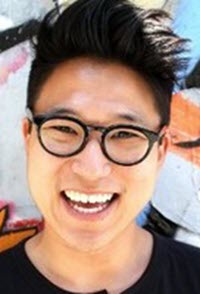Abstract
Excerpted From: Josiah Pak, Korean Americans, the Protestant Christian Church, and the Future of Asian American LGBTQ Rights, 17 Hastings Race and Poverty Law Journal 553 (Summer, 2020) (170 Footnotes) (Full Document)
 There are always two sides to a claim. The claim here is that lesbian, gay, bisexual, trans and queer (LGBTQ) individuals living in the United States should have the same rights as heterosexual individuals.
There are always two sides to a claim. The claim here is that lesbian, gay, bisexual, trans and queer (LGBTQ) individuals living in the United States should have the same rights as heterosexual individuals.
On one side of this claim is the LGBTQ community. On the other side, it is hard to say exactly who or what exists. This is not because the other side does not have a name. Rather, the other side interchanges between multiple communities: the conservatives, the traditionalists, and the religious, to name a few. Historically, these communities have attempted, with at times success, to stifle LGBTQ rights. The very fact that marriage was only recently and finally afforded to same sex couples is a testament to the successful efforts, by these communities, to prevent LGBTQ people from enjoying equal rights. To continuously strive for equality is to understand who or what stands between basic civil rights and the LGBTQ community who has been fervently fighting for these rights.
This paper focuses on the Protestant Christian church. Specifically, the Korean American Protestant Christian church. Though this community is not entirely responsible for stonewalling LGBTQ rights, it is one of the larger communities within the opposition. Korean Americans, in fact, make up one of the largest, if not the largest, community of Protestant Christians among any Asian American community currently in the United States. Specifically, Korean Americans represent that largest portion of the American Evangelical Protestant community.
In the current American landscape, the Korean American Protestant community is represented by two groups: the first-generation Korean American immigrants and their children, native-born second-generation Korean Americans. The former brought remnants of Christianity from their homeland during the process of emigration. First-generation Korean American immigrants likely fit squarely within the conservative, traditionalist, and religious framework of those preventing equal LGBTQ rights. However, as immigration from Korea slowly declines, their hold on Korean American society and, in turn, politics wane slowly.
The latter group, the second-generation Korean American, is often engaged in what is known as “the pendulum swing.” This generation swings between ideologies and social underpinnings of the older generation and a new “American” identity. At a certain point, however, the pendulum will eventually settle. The exact location it settles is most critical for the future of LGBTQ rights.
This paper seeks to analyze the Korean American Protestant Christian's future engagement as it pertains to LGBTQ rights; specifically, as it pertains to Asian American LGBTQ rights. By recounting Korean immigration to the United States, the role of the Protestant Christian church to these newly immigrated Koreans, and the influence of the Korean American Protestant Christian church in previous LGBTQ-related battles, this paper seeks to understand Korean Americans Protestant Christian attitudes regarding future LGBTQ issues.
[. . .]
The extent of studies existing within the intersection of Korean American Protestant Christianity and LGBTQ rights is relatively trivial. Asian American studies, in itself, is relatively new. But, when Asian Americans studies cross with LGBTQ studies and now religious studies, mainstream representations along with research is far too lacking. Amy Sueyoshi, an Asian American scholar, says that she can count the number of Asian American LGBTQ scholars with one hand. Prop 8 may have been one of the first and potentially the only case study in which Korean American Protestant Christians and their attitudes for or against LGBTQ rights have been documented. Predictions on how this community will respond to future LGBTQ issues and the strategies on how to influence their positive support is at most an educated guess. There is still integral work to be done.
Implications from this work goes beyond the United States. Progressive LGBTQ organizations in Korea have been taking cues from the United States since the 1980s. Korea has since started annual queer festivals and declared employment discrimination and military bans against same-sex couples unconstitutional. In 2011, Seoul city government passed a provision that protected LGBTQ teens and, in 2016, a Seoul court heard lawsuits in hopes of recognizing same-sex marriage. It is reasonable to speculate that Korean nationals will look to the actions of Korean Americans Protestant Christians for future LGBTQ issues--the very near future of LGBTQ rights.
Until then, Korean nationals, current Korean Americans, and even the larger Asian American Protestant Christian community can look to the small, yet essential, group of Korean Americans in history who bravely embraced both their Korean and LGBTQ identities. Individuals like Willyce Kim, Merle Woo, a prominent Asian American lesbian performer, and Don Choi, a gay Korean American soldier who was a leader against the “Don't Ask, Don't Tell” policy, are among the few who have paved the way for the future of LGBTQ rights within the Korean American community. Resources like the “Dari Project” are collecting and sharing stories and artwork of LGBTQ Korean Americans. Even national events such as KQTcon, a conference catered to the Korean American LGBTQ community, exist to build bridges between these separated communities.
Korean immigrants set foot on American soil, among other reasons, to seek economic stability, start families, and find freedom from an oppressive regime. It is not entirely far-fetched to see LGBTQ individuals seeking the same. Hopefully, it is not entirely far-fetched to see Korean Americans supporting LGBTQ individuals in the near future.
Juris Doctor Candidate, University of California, Hastings School of the Law.


